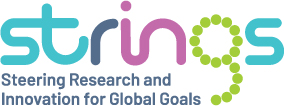STRINGS contributes to UN DESA expert meeting on role of digital technologies in sustainable development
During the summer, STRINGS co-investigator Dr Tommaso Ciarli took part in the UN Department of Economic and Social Affairs (UN DESA) Division for Inclusive Social Development (DISD)’s Expert Group Meeting on the Socially just transition towards sustainable development: The role of digital technologies on social development and well-being of all, alongside Prof Maria Savona from the Science Policy Research Unit (SPRU).
The meeting aimed to provide the UN Commission for Social Development with concrete, evidence-based policy recommendations ahead of its meeting in February 2021.
